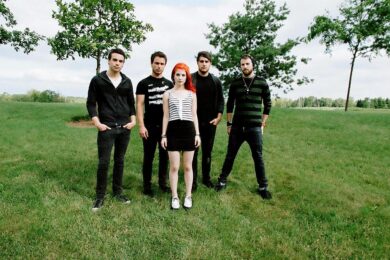If the internet has done anything for music, it seems to me that it’s smashed the notion of genre into tiny useless pieces. This wouldn’t be at all problematic if it weren’t for the fact that everyone’s favourite MP3 databases insist on including genre fields/tags (delete according to whether you recognise that iTunes et al essentially turn your hobby into ‘data entry’), and because genre used to have a point, a function.
I’m fascinated by the idea of what music is for, its utility and purpose. Note that this isn’t the same thing as ‘authorial intention’; it’s about what the listener does with music as much as what the composer wants to be done with it. One of the things genre used to be good for was letting people know what other things were good for: horror films are for scaring you, dance music is for dancing to, romance novels are for… In a space that exists after genre, where things bleed together with infinite, digitally enhanced eclecticism, using Ableton and its ilk as a binding agent to smooth the cracks between musics that otherwise wouldn’t (and maybe shouldn’t) fit together, genre is difficult to apply and doesn’t seem to mean much anymore. This is both liberating and infuriating.
Psychic exists in that space beyond genre. One of the record’s authors has described it as a ‘rock’ record but it sounds literally nothing like it. A reductive description might posit it as electronic-blues, but that wouldn’t express the full scope of a record that seems to take its lineage from krautrock, minimal techno, jazz, and almost certainly a dozen other things I can’t identify. Maybe the thing it spirals closest to is the nu-Balearic sound that artists like Studio and Strategy were mining circa 2007; free but linear, grooving, sonically delicious, pulsing, echoing. Somehow, though, what Darkside do feels deeper, richer, more reqarding.
To give some context, Darkside are a duo comprising Dave Harrington and Nicolas Jaar. You’ll probably be aware of the later; his Space Is Only Noise album from 2011, and the singles, remixes, and EPs that surrounded it, got a certain stripe of electronic music fan salivating. His heritage takes in Berlin, South America, and Brooklyn, his musical education jazz, classical, and minimal and experimental techno. About Harrington we know less; a college classmate of Jaar’s from their (very recent) undergraduate days at Brown. An emerging narrative regarding Darkside seems to be that it’s a Jaar album with his mate Dave playing guitar over the top, but that’s reductive and disingenuous; the merest glimpse at credits reveal that both musicians contribute a wide array of instruments, and that songwriting and production credits are shared equally. A few months ago, seemingly for giggles, they remixed the entirety of the current Daft Punk album, under the pseudonym ‘Daftside’.
The sound of Psychic is meticulous and luscious. The beats are varied and creative, taking in thumping club kicks and swirling handclaps, and there are dubby, psychedelic soundscapes that, like Jaar’s solo material, feel architectural in their fastidious construction. Vocals are low key but intimate in the mix, credited to Jarr but seeming much more like a sampled, impressionistic component than a guiding melody or purpose. Guitar is rarely the lead instrument, and more usually just another evocative ingredient in the mix, upstrokes feeling disco-y, winding solos and changing textures feeling experimental. On ‘Paper Trails’ it veers a little too close to recognisable and trad blues licks, but the likes of ‘Freak, Go Home’ obliterate any notion that this might be dismissible as reactive or retro.
So what are Darkside for? What’s their utility, their purpose? There’s undoubted kinesis and rhythmic momentum here, but it’s not a record for dancing to, exactly. Despite the electric guitar skills on show, there are no foot-on-an-imaginary-monitor air-guitar moments. There are vocals, but you’d be hard-pressed to sing along at a gig. So perhaps we conclude that it’s just for listening to, the way that a Kandinsky painting is just for looking at, which sounds prosaic and utilitarian but is actually complex and subtle. Psychic seems to me to lend itself to high-end stereo systems and big speakers, to enveloping headphones and spectacular vistas, to aesthetic contemplation and phenomenological rumination. But also to iPod docks and kitchens, or car stereos and motorways, or second-hand separates and smoky student bedrooms. It will sound delicious in any context, I’d wager, because it’s excellent.



